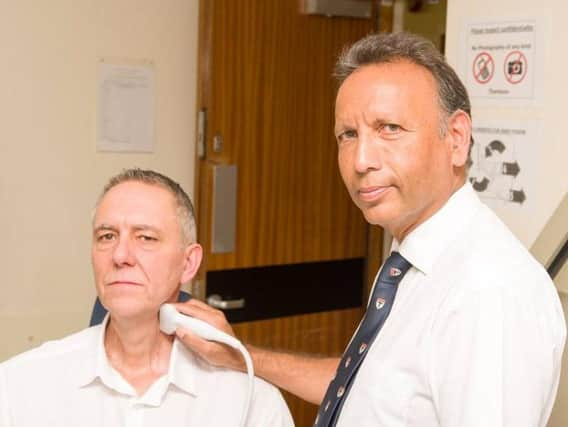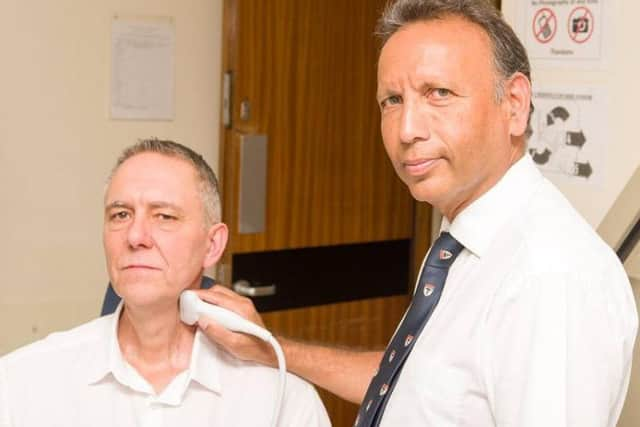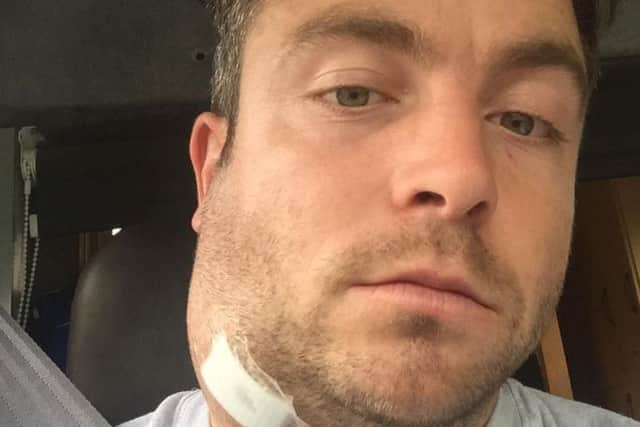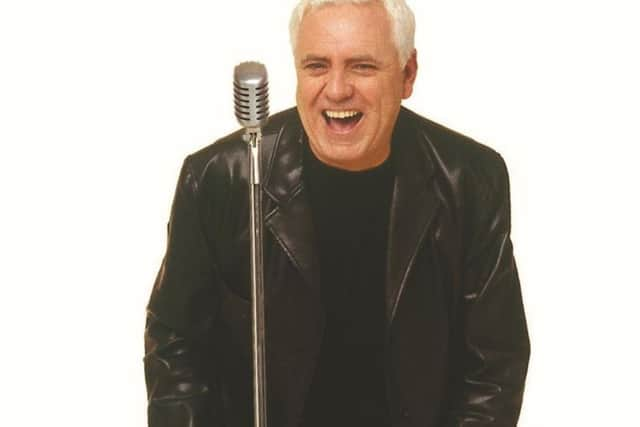Here is why Lancashire celebrities are backing North West Cancer Research's #SpeakOut head and neck cancer campaign


Chorley comedian Dave Spikey and British and International event rider Ben Hobday have joined other famous faces across the North West to launch the charity’s #SpeakOut head and neck cancer awareness campaign, urging men to be more vigilant when it comes to the early warning signs of the illness.
Alastair Richards, CEO North West Cancer Research, says: “By raising awareness of head and neck cancers and the associated symptoms, we can encourage people to be more vigilant in recognising the early warning signs.
Advertisement
Hide AdAdvertisement
Hide Ad“The disparity between the number of men being diagnosed with these cancers, compared to women, shows we need to do more to encourage men to undergo regular health checks and visit their GP as soon as they have any concerns.


“We have the backing of some great local celebrities and we hope their involvement in the campaign will help men speak out when it comes to head and neck cancer.”
After surviving his own experience of head and neck cancer, Chris Curtis is delighted celebrities are getting on board to raise awareness of the #SpeakOut campaign.
He runs his own charity, The Swallows Head and Neck Cancer Support Group, that he set up in March 2012 to offer support to patients and carers.
Advertisement
Hide AdAdvertisement
Hide AdThe 60-year-old from Blackpool was diagnosed with a squamous cell carcinoma (the most common form of throat cancer) in 2011, after noticing a lump on the side of his neck that was growing.


A biopsy revealed he had stage four throat cancer and three tumours, on the base of his tongue and on either side of his neck.
He underwent a six-week course of radiotherapy and chemotherapy at Blackpool Victoria Hospital that shrunk the primary tumour. He then had two neck dissections to remove the secondary tumours from each side of his neck.
Unable to eat or drink because of the severity of his condition, Chris had a PEG feeding tube fitted to allow him to get the nutrients he needed.
Advertisement
Hide AdAdvertisement
Hide AdFor the next three years, Chris could only eat via the feeding tube and he lost a total of 12 stone. Chris also lost the full function of his saliva glands and a change in his taste buds.


In 2016, after being cancer free for five years, Chris was eventually told he was in remission.
Chris said: “In the run up to my diagnosis, I was really busy at work and visiting the doctors wasn’t my priority. Doctors told me I was a week or two away from being inoperable and a couple of weeks away from ending up in A&E from being choked by the tumours.
“This is why it’s important to know the symptoms and make time to visit the GP if you are unsure of any health changes. I had never heard of head and neck cancer, the causes or the symptoms, and having never been a smoker or drinker, I wasn’t aware that I could one day be diagnosed myself.
Advertisement
Hide AdAdvertisement
Hide Ad“I know from first-hand experience that head and neck cancer can be one of the most debilitating cancers both physically and mentally. It led to me being diagnosed with depression during my treatment and I even experienced suicidal thoughts.
“Head and neck cancers are one of the biggest cancer killers in the North West and by sharing my story as part of the #SpeakOut campaign, hopefully I can help raise more awareness of the disease and its symptoms.”
In Lancashire, the number of people being diagnosed with this type of cancer is significantly higher than elsewhere in the UK.
Averages across the region show that 14.81 per 100,000 of cases are diagnosed each year, compared to 13.2 per 100,000 across the UK as a whole.
Advertisement
Hide AdAdvertisement
Hide AdSymptoms which are associated with head and neck cancer include – but are not limited to – a persistent sore throat, a feeling of a lump in the throat, mouth ulcers that have not healed after three to four weeks, a hoarse voice that persists longer than three weeks, blood in your spit and difficulty swallowing.
Men are three times more likely to be diagnosed with head and neck cancer.
Professor Terry Jones, director of the North West Head and Neck Centre is working with charity North West Cancer Research, to help tackle these rising head and neck cancer rates.
To find out more visit www.nwcr.org/our-work/campaigns/head-neck/.